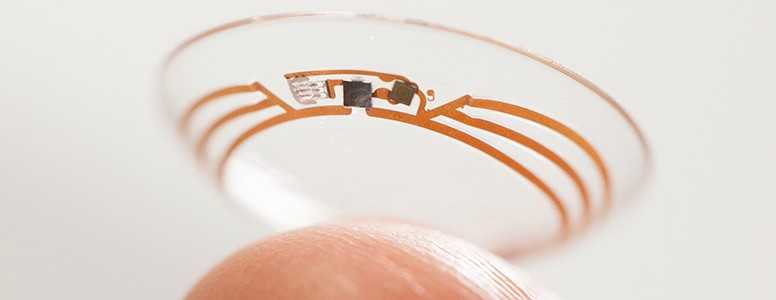A James Dyson award-winning team has designed smart contact lenses that monitor the blood sugar levels of diabetes patients and transmits data to their phone in real time.
The inventio, developed by engineers from the University of Waterloo, could be a game-changer in the field of blood sugar monitoring, particularly for individuals with variable blood glucose levels.
The lens is minimally invasive and works by analysing tear fluid in diabetic users. It is linked to a clip wearable on the collar or behind the ear which is connected to a small device that transmits the data to the person’s smartphone.
Users put it on in the morning, take it off at night, and clean it just like a normal contact lens. It doesn’t affect a person’s vision in any way and isn’t contraindicated by other diabetes prescriptions.
The prototype is made of an application-specific integrated circuit (ASIC) chip, an antenna and a sensor, which is embedded between the layers of lens material.
A pinhole in the lens allows tear fluid to seep into the sensor where physiologic pH values are used to measure blood sugar levels.
The antenna then acts as a controller to communicate information to a small device wired to the phone where detailed readings are available at a tap on the user’s phone.
Although the product holds promise, it won’t be adapted for every diabetes patient. The technology could prove highly unreliable for people with dry eyes syndrome who lack adequate tears, for example.
The technology is still at an experimental stage as it has yet to go through human testing, which won’t happen until April 2017.
With this contact lens, the engineering team led by Harry Gandhi hopes to drastically ease life for patients with diabetes by making finger pricking, and other glucose testing methods, a thing of the past.
What's new on the forum? ⭐️
Get our free newsletters
Stay up to date with the latest news, research and breakthroughs.







